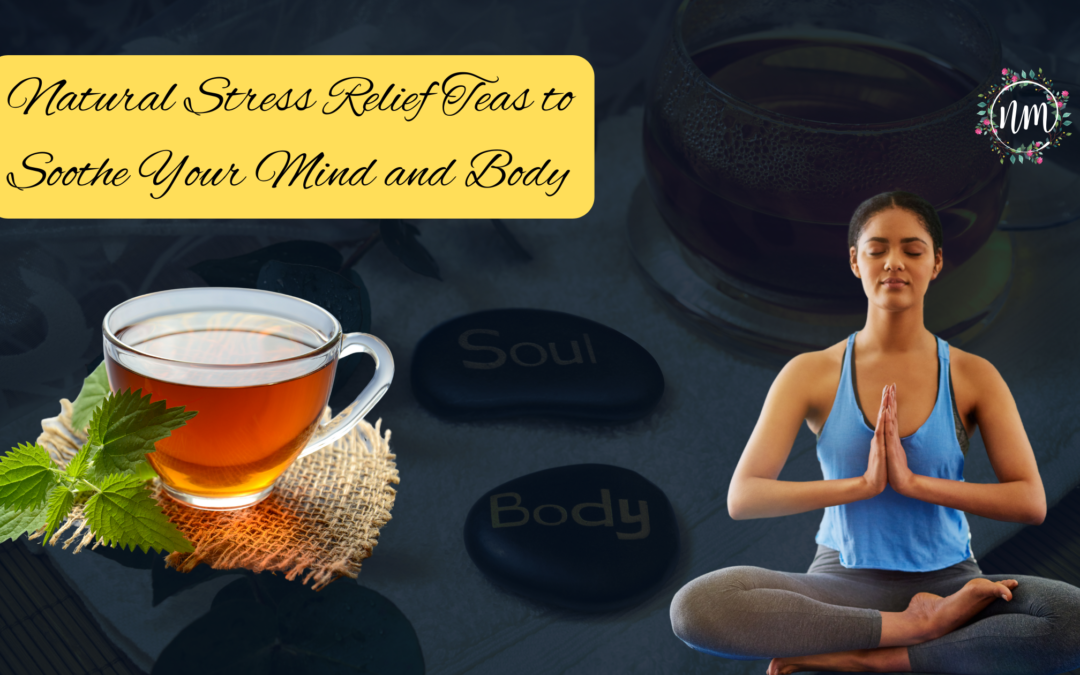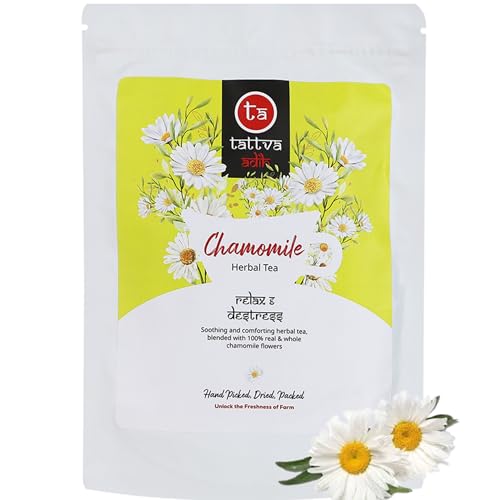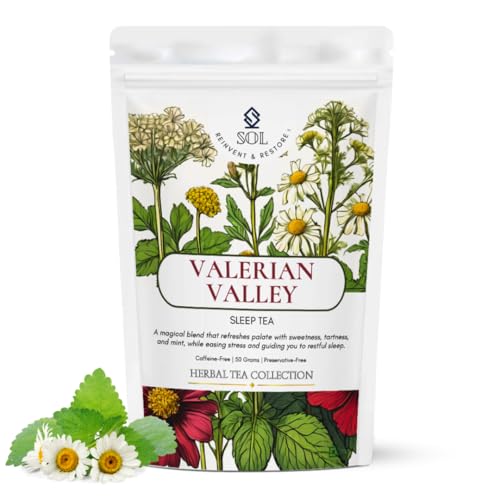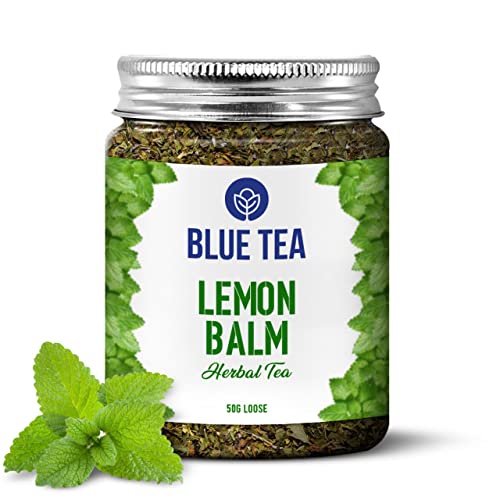Top 5 Natural Stress Relief Teas to Soothe Your Mind and Body
Introduction to Natural Stress Relief Teas
In an era characterized by rapid changes and constant demands, the quest for effective stress management has become more crucial than ever. Natural stress relief teas offer a soothing remedy for individuals seeking to calm their minds and bodies amidst life’s pressures. These herbal infusions, drawn from a variety of plants, have been utilized for centuries across cultures, not just for their delightful flavors but for their myriad health benefits as well. The significance of these teas lies in their ability to promote relaxation, reduce anxiety, and provide a moment of tranquility in our hectic routines.
Each herbal tea carries its own set of properties that can help alleviate stress and encourage a sense of well-being. For adults in today’s fast-paced world, finding natural ways to combat stress is essential. Many people are turning away from pharmaceutical solutions in favor of holistic approaches. Herbal teas are particularly appealing due to their accessibility, ease of preparation, and the soothing ritual that comes with brewing a warm cup. The simplicity of steeping tea allows it to be integrated into daily life, transforming an ordinary moment into a calming experience.

Moreover, the act of sipping a warm beverage engages the senses, fostering an environment conducive to relaxation. Whether you seek a moment of pause during a busy workday or an evening ritual to unwind, natural stress relief teas can offer the peaceful respite one needs. With a wide variety of options available, from chamomile to lavender, these brews not only enhance your relaxation experience but also support overall health. Thus, exploring the world of herbal teas is an inviting step toward managing stress naturally and effectively.
Understanding Stress and Its Impact on the Body
Stress is a natural response by the body to challenging situations, often referred to as the “fight or flight” reaction. When faced with perceived threats, the body releases hormones such as cortisol and adrenaline, which prepare it to respond effectively. While this response can be advantageous in short bursts, chronic stress poses significant risks to both mental and physical health. Over time, the sustained elevation of stress hormones can lead to a multitude of adverse effects.
Mentally, stress can manifest as anxiety, depression, and irritability. Individuals may experience mood swings, difficulty concentrating, and overwhelming feelings of fatigue. The cognitive functions of the brain can be hampered as well, resulting in diminished memory and decision-making capabilities. On a physical level, the ramifications of prolonged stress can become evident through various symptoms such as headaches, muscle tension, digestive issues, and chronic fatigue. Furthermore, continuous stress weakens the immune system, making the body more susceptible to illnesses.

Given the widespread impact of stress, it is essential to recognize the need for effective stress management techniques. Adopting natural approaches to mitigate stress can not only improve mental clarity and emotional resilience but also enhance overall well-being. Among these methods, herbal tea provides a holistic and enjoyable way to relieve stress. Certain blends of herbal tea, containing ingredients like chamomile, lavender, and valerian root, are known for their calming properties, promoting relaxation and aiding sleep.
When integrated into a regular routine, herbal teas can contribute positively to stress relief. By creating a ritual around tea consumption, individuals can carve out moments of tranquility amidst their busy lives, which can be particularly beneficial in promoting mindfulness and emotional stability. Ultimately, addressing stress holistically through natural remedies such as herbal tea can pave the way toward better mental and physical health.
Benefits of Drinking Herbal Teas for Relaxation
In the fast-paced lifestyle many individuals lead today, finding effective methods for stress relief is vital for maintaining overall health and well-being. Herbal teas have emerged as a favored choice, not only for their delightful flavors but also for their numerous health benefits, particularly concerning relaxation and stress reduction. These natural beverages are derived from various plants, which contain bioactive compounds that contribute to their calming properties.
One of the significant ways herbal teas promote relaxation is through the reduction of cortisol levels, the hormone that the body produces in response to stress. Research published in the Journal of Psychopharmacology suggests that certain herbs, such as ashwagandha and chamomile, may help decrease cortisol, thereby mitigating stress responses in the body. Additionally, compounds such as flavonoids and terpenes, which are prevalent in herbal teas, can influence neurological function. A study by the National Institutes of Health indicated that certain phytochemicals found in herbal infusions can positively affect neurotransmitter activity, promoting a sense of calm and well-being.

Herbal teas also play a vital role in improving sleep quality. Many herbal varieties, such as valerian root and lavender, are known for their sedative effects, which can assist individuals struggling with insomnia or restless nights. The calming properties of these plants can encourage relaxation, allowing for a more restful sleep cycle. Furthermore, the ritual of preparing and enjoying a warm cup of herbal tea can itself serve as a mindfulness practice, further reducing stress levels.
Moreover, the consumption of herbal teas can have a substantial effect on the nervous system. Studies have shown that certain teas, such as passionflower, exhibit anti-anxiety effects, effectively calming racing thoughts and creating a more serene mental state. Expert opinions from herbalists emphasize that integrating these teas into daily routines can create long-lasting benefits for stress management.
Top 5 Natural Stress Relief Teas
When navigating the challenges of daily life, the soothing properties of herbal teas can provide a much-needed respite. Here are five of the top natural stress relief teas known for their calming effects, along with their unique characteristics and potential benefits.
1. Chamomile Tea: This classic herbal tea is renowned for its calming effects, often consumed before bedtime to promote restful sleep. Chamomile has a mild, sweet flavor with floral notes. Its active compounds, such as apigenin, bind to specific brain receptors that help reduce anxiety and stress. A simple chamomile tea recipe involves steeping dried chamomile flowers in hot water for about five minutes. Adding honey can enhance its soothing properties.
2. Lavender Tea: Known for its aromatic essence, lavender tea offers both a wonderfully floral taste and a plethora of calming benefits. The scent of lavender is often associated with relaxation, thanks to its ability to lower heart rates and reduce stress levels. To prepare, steep dried lavender buds in hot water, which can be enjoyed hot or iced.
3. Peppermint Tea: While primarily known for easing digestive issues, peppermint tea also has soothing effects on the mind. The refreshing flavor of peppermint can help invigorate the senses, leading to an improved mood and reduced feelings of stress. Brew tea by steeping fresh or dried peppermint leaves in hot water, optionally combining it with chamomile for an even more relaxing blend.
4. Lemon Balm Tea: A member of the mint family, lemon balm tea has a light, lemony flavor that brings a refreshing taste along with its stress-relieving properties. Research suggests that lemon balm can help reduce anxiety and improve overall mood. To prepare, steep crushed lemon balm leaves in hot water, and consider blending with honey for added sweetness.
5. Valerian Root Tea: Valerian root is known for its sedative properties, making it a popular choice for those struggling with stress and insomnia. The tea has an earthy taste and is often combined with other calming herbs. To make valerian root tea, steep the dried root in hot water and allow it to infuse for several minutes. This tea is best consumed before bedtime for its maximum effect.
In addition to these individual teas, many calming tea blends combine various herbs to enhance stress relief. Popular blends might include chamomile and lavender or lemon balm and peppermint, providing a multi-faceted approach to relaxation. With these options, creating your own herbal tea recipes at home can be a delightful and effective way to combat stress while enjoying the rich flavors of nature.
How to Prepare Your Calming Tea Blends
Brewing the perfect cup of calming tea is an art that requires attention to detail, allowing you to fully experience the stress-relief benefits. First and foremost, the choice between loose leaf and tea bags can influence both the flavor and effectiveness of your tea. Loose leaf tea often offers a richer taste and better quality, as it typically contains whole leaves, while tea bags can be more convenient. If you opt for loose leaf, a good rule of thumb is to use one teaspoon of tea per cup of water.
The water temperature is another critical factor in brewing calming tea. Different types of tea require different temperatures; for instance, herbal teas generally should be steeped in boiling water (around 212°F or 100°C), while green teas fare better with water that is slightly cooler, around 175°F (80°C). Using water at the correct temperature ensures that the tea’s beneficial compounds are effectively extracted. After boiling your water, it’s best to let it cool slightly if you’re using green or white teas, thus preserving their delicate flavors and health benefits.
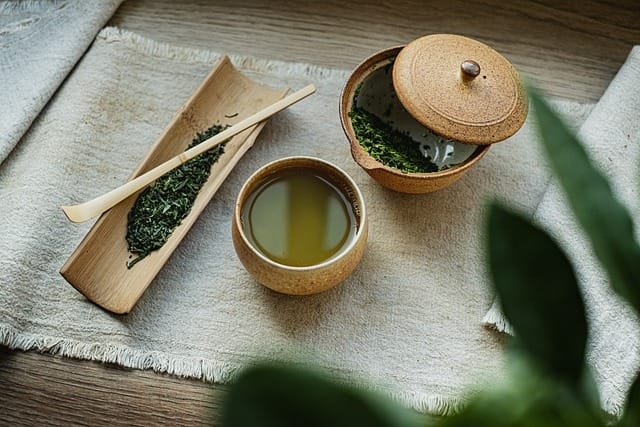
Next, steeping time plays a significant role in the tea’s taste and potency. Herbal blends should steep for at least 5-7 minutes to fully release their calming properties. In contrast, green teas may only need 2-3 minutes, while black teas typically require 3-4 minutes. Over-steeping can result in bitterness, particularly with black and green teas, so carefully timing your steeping process is essential.
To further enhance the soothing effects of your calming tea, consider adding natural ingredients such as honey, which adds sweetness and additional health benefits, or a slice of lemon for a refreshing zest. Both can elevate the soothing experience while contributing their own unique health advantages. By focusing on the preparation methods and carefully selecting your ingredients, you can brew the ideal calming tea blend that not only tastes delightful but also offers substantial stress relief.
Herbal Tea Recipes for Stress Relief
Herbal teas are well-known for their calming properties, making them a perfect choice for those seeking to relieve stress. Here are a few easy herbal tea recipes that incorporate some of the top stress-relief teas mentioned earlier. These recipes not only promote relaxation but can also be customized to suit individual preferences.
Chamomile and Lavender Infusion: This soothing blend combines two potent herbs known for their calming effects. To make this infusion, steep one tablespoon of dried chamomile flowers and one teaspoon of dried lavender in two cups of boiling water for about 10 minutes. Strain the tea and add honey for sweetness if desired. This relaxing tea can be enjoyed before bedtime for enhanced sleep quality.
- Herbal Tea for Stress Relief and Calming Made with all natural herbs & botanicals
- Supports stress reduction & promotes calmness
- 100% Caffeine Free Herbal Tea: Pure Blend of Chamomile Flowers+ Lavender Flowers+ Mint Leaves
Peppermint Lemon Balm Blend: For a refreshing and uplifting drink, combine one teaspoon of dried peppermint leaves with one tablespoon of dried lemon balm. Steep in two cups of boiling water for 7-10 minutes. The natural minty flavor will invigorate your senses, while the lemon balm provides a gentle calming effect, making it an excellent choice for midday stress relief.
- GUT FRIENDLY: Lemon Balm tea has traditionally been used to relieve gastrointestinal problems like bloating, indigestion…
- Overall Wellness: Lemon balm tea is good both for your gut and skin. Lemon balm ointments have shown promising results i…
- IMMUNE SYSTEM ENHANCER: Lemon balm is rich in antiviral and antibacterial compounds, besides being loaded with antioxida…
Passionflower Citrus Tea: Passionflower is a lesser-known herb that assists in reducing anxiety. To prepare this unique tea, steep one tablespoon of dried passionflower with slices of fresh lemon and orange in two cups of boiling water for 10 minutes. This delightful combination not only aids relaxation but also delivers a deliciously fruity flavor.
Ginger and Tulsi Tea: Known as Holy Basil, Tulsi offers numerous health benefits along with stress-relieving properties. Combine one teaspoon of grated fresh ginger and one tablespoon of dried tulsi in two cups of hot water. Steep for 10 minutes, then strain. Adding a dash of honey can enhance its flavor further while promoting a sense of calm.
- Manufacturer :- Organic India
- Indications: – All types of stresses, to feel relaxed, feeling of low energy, to boost stamina, to improve digestion and…
- Dosage: – 2-3 Cups daily (using one infusion bag or 2g loose per cup to make good infusion)
Remember, these recipes can be adjusted based on personal taste. Experimenting with the ratios of herbs or even adding new ingredients such as cinnamon or vanilla can create a unique stress-relief tea tailored just for you. Enjoy exploring various flavors as you embark on your journey to relaxation through tea.
Incorporating Natural Stress Relief Tea Into Your Daily Routine
Integrating natural stress relief teas into your daily routine can significantly improve your mental and physical well-being. It’s not just about drinking a cup of tea; it’s about creating a calming ritual that encourages relaxation and mindfulness. Finding the right moments in your day to indulge in these soothing brews can make a substantial difference in managing stress levels.
One optimal time to enjoy a relaxing cup of herbal tea is during breaks throughout your day. Whether it’s a quick moment at work or a pause while running errands, taking the time to sip on a warm cup of chamomile or lavender tea allows you to step back, breathe deeply, and reset your mind. These short breaks serve as effective stress management tools, providing necessary mental space and detachment from daily pressures.
Another especially beneficial moment to incorporate herbal tea into your schedule is before bedtime. Many natural stress relief teas, such as lemon balm or valerian root, serve dual purposes by providing relaxation while promoting better sleep. By establishing a bedtime ritual that includes a warm cup of tea, you signal to your body that it is time to unwind, encouraging quality sleep that ultimately aids in stress reduction.

Furthermore, consider tea time as part of your self-care routine. Whether it’s dedicated “me time” during the weekend or simply enjoying a quiet moment in the evening, making tea a centerpiece of your self-care practice enhances the overall experience. This could include pairing your tea with mindful activities like journaling, reading, or meditating, thereby reinforcing the calming benefits of your beverage choice.
Ultimately, the key is to establish a regular tea ritual that fits your lifestyle. By consciously setting aside time for natural stress relief teas, you not only benefit from their calming properties but also cultivate moments of peace and relaxation amid life’s challenges.
Other Natural Stress Relief Techniques
While enjoying herbal teas is an excellent way to promote relaxation and reduce stress, there are various other natural methods that can further enhance stress relief. Incorporating practices such as meditation, yoga, and mindfulness into your daily routine can create a holistic approach that supports mental well-being.
Meditation is a powerful technique that allows individuals to focus their thoughts and engage in self-reflection. By dedicating just a few minutes each day to mindfulness meditation, one can cultivate a state of calm and clarity. This practice encourages individuals to observe their thoughts without judgment, leading to a greater understanding of personal stressors and facilitating emotional release. When combined with sipping on herbal teas like chamomile or lavender, meditation can amplify the relaxation response, making it easier to unwind.
Yoga offers another effective method for stress relief. The practice combines physical postures, breath control, and meditation to create a comprehensive approach to well-being. Through gentle movements and deep stretches, yoga helps to release tension stored in the body and encourages a more relaxed state of mind. Performing yoga poses in a tranquil environment while enjoying a cup of herbal tea can create a serene atmosphere that enhances the calming effects of both practices.

Mindfulness, akin to meditation, emphasizes maintaining awareness of the present moment. Engaging in mindful activities such as mindful eating, walking, or breathing exercises encourages individuals to focus on the sensations in their body and surroundings. This heightened awareness can help mitigate stress and anxiety while promoting a sense of calm. Incorporating mindfulness into tea-drinking rituals can transform the experience into a more contemplative practice, enhancing the overall effects of herbal teas.
In conclusion, integrating natural stress relief techniques such as meditation, yoga, and mindfulness alongside the consumption of herbal teas can significantly enhance one’s well-being. A holistic approach that encompasses multiple practices is often the most effective way to manage daily stress and promote relaxation.
Conclusion: Finding Your Path to Relaxation
In our exploration of natural stress relief teas, we have highlighted five noteworthy options that offer numerous benefits for both the mind and body. Herbal infusions such as chamomile, peppermint, lemon balm, lavender, and green tea, each bring unique qualities that promote relaxation and tranquility. Chamomile, known for its soothing properties, can help decrease anxiety levels, while peppermint invigorates the senses and can aid in digestion. Lemon balm not only assists in reducing stress but can also improve sleep quality. Lavender contributes to calming the nervous system, and green tea serves as a gentle energy booster while containing compounds that help enhance mood.
Choosing the right calming tea blends is often a personal journey, influenced by your individual tastes and stress-relief needs. It is essential to experiment with different varieties and preparations to discover which teas resonate most effectively with you. Whether you prefer a fragrant cup of lavender tea before bed or a refreshing peppermint infusion during the day, the key lies in identifying what brings you comfort and relaxation. Additionally, many people find that the ritual of brewing and enjoying tea itself can become a meditative act, further enhancing its stress-relief effects.
We invite you to share your thoughts and experiences regarding natural stress relief teas. Have you tried any of the highlighted teas, or do you have other favorites that help you unwind? Engaging in this dialogue may not only enrich your own experience but also provide valuable insights to fellow readers on their journeys toward relaxation. Embrace the world of calming teas, and may you find your perfect blend that helps soothe both your mind and body.

